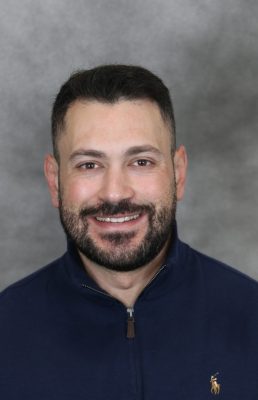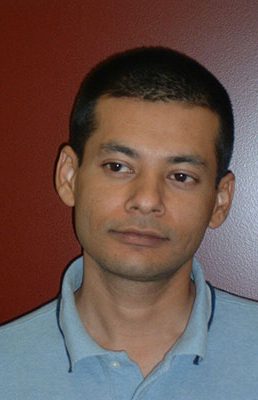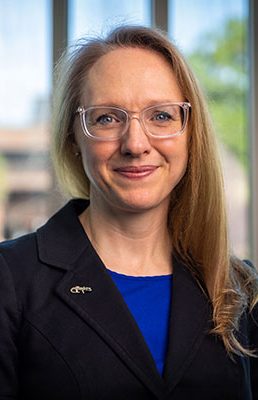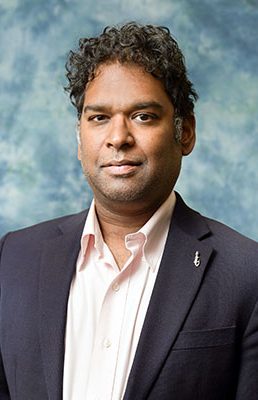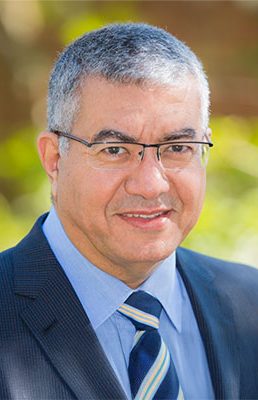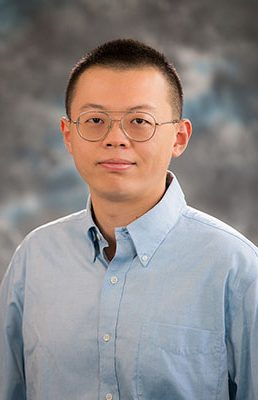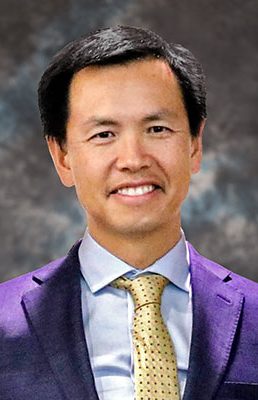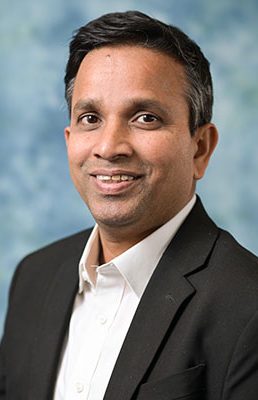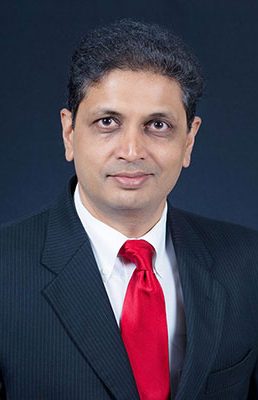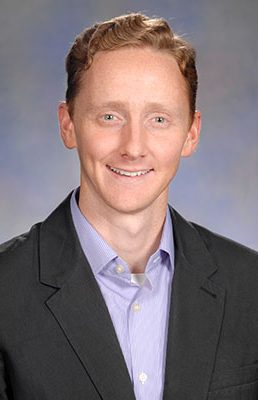
Ashish Aggarwal is an Instructional Associate Professor of Computer Science in the Department of Engineering Education at the Herbert Wertheim College of Engineering, University of Florida. His research explores the intersection of Computer Science Education, Learning Analytics, and Artificial Intelligence, with a focus on developing innovative technologies and pedagogical approaches to enhance programming education. He directs the Computational Reasoning Group, where he mentors students on Computing Education Research and Learning Analytics projects.…

Education
- Ph.D. in Human-Centered Computing, University of Florida
- B.S. in Computer Science, Kean University
- B.A. in Mathematics, Kean University
Primary Research Area
Human-Centered Computing
Research Areas
Brain-Computer Interfaces, Human-AI Interaction, Human-Computer Interaction
Research Interests
Human-Drone Interaction, Attention Enhancement for ADHD, Neurotechnology, Neural Interfaces
Awards & Distinctions
Tampa Bay Top 10 Under 40


Jeremiah Blanchard’s research focuses on computer science education and research in human-computer interaction in education. This work includes examination of programming language representations and exploration of how educational games can help students learn science, technology, engineering, and mathematics. He holds a Ph.D. in Computer Engineering from the University of Florida.
Previously, Dr. Blanchard served as Program Director over Game Development at Full Sail University in Winter Park, Florida (in the greater Orlando area), where he taught, served in administration, and developed educational and health-related games.…


Dr. Sharon Lynn Chu is part of the Human-Centered Computing group and directs the Embodied Learning & Experience (ELX) Lab. The ELX Lab conducts research in human-computer interaction (HCI) focusing specifically on cyberlearning (technologies to support learning) and positive computing (technologies for health and well-being). The primary mission of the Lab is to conceptualize, investigate, design, and develop technology-based approaches to solve real individual and societal problems.…

Primary Research Area
Machine Learning
Research Areas
Machine Learning
Education
Ph.D., Computer Engineering, University of Florida, 2017
M.S., Computer Engineering, University of Florida, 1999
B.A., Classical Studies, University of Florida, 1997
Research Interests
Machine Learning, Natural Language Processing, Object-Oriented Programming


My work explores methods for effectively building intelligent agents and learning systems for interpersonal skills development. This involves building engaging virtual agents-based learning simulations, modeling and assessing various interpersonal skills, and building visualizations to effectively communicate feedback to learners. Previously I was a PostDoc at the USC Information Sciences Institute through a CRA Computing Innovation Fellowship.…

Bonnie J. Dorr is a Professor of Computer Science at the University of Florida and a member of the Florida Institute for National Security (FINS). She leads the Natural Language Processing (NLP) Research Laboratory, where her work centers on artificial intelligence methods for deep language understanding, multilingual processing, and explainable AI.

Primary Research Area
Image and Signal Analysis
Research Areas
Computer Vision & Medical Image Computing, Graphics and Visualization, Machine Learning
Awards & Distinctions
- Young Investigator Program (YIP) award
- National Science and Engineering Research Council (NSERC) of Canada Post Doctoral Fellowship

Joshua Fox is a Senior Lecturer in the Department of Engineering Education and teaches early programming courses in Computer & Information Science & Engineering. He also serves as the Director of the Digital Arts and Sciences degree programs in CISE. He received a MS in Mobile Gaming and a BS in Game Development from Full Sail University in Winter Park, FL.…

Primary Research Area
CS Education Research
Research Areas
CS Education Research, Educational Technologies, Human-Centered Computing, AI Education


Alexandre G. de Siqueira, Ph.D., is an Assistant Instructional Professor at the Department of Computer & Information Science & Engineering. His research focuses on human-centered computing and human-computer interaction. This work includes investigating the intersection between tangible user interfaces, multi-touch, augmented, and virtual reality and examining Virtual 3D Social Spaces for enhanced learning environments. He is also interested in the maker movement, and how rapid digital prototyping can be brought to the masses.…

Dr. Graim received her Ph.D. in 2016 from the University of California, Santa Cruz, advised by Professor Josh Stuart. She did postdoctoral research at Princeton University and the Flatiron Institute, Simons Foundation, working with Professor Olga Troyanskaya. Dr. Graim’s research operates at the confluence of life science research and computer science. Her lab develops machine learning models that integrate diverse large-scale genomics data to address key questions in human health and disease.…

Dr. Christan Grant is an Arnold and Lisa Goldberg Rising Star Associate Professor in Computer Science at the University of Florida Department of Computer & Information Science & Engineering. Dr. Grant leads the UF Data Studio. In this role, he conducts research on various aspects of the data pipeline, including data acquisition, labeling, interactive machine learning, and visualization.…

Eakta Jain, Ph.D., is an associate professor in the Department of Computer & Information Science & Engineering at the University of Florida. She received her Ph.D. and M.S. degrees in Robotics from Carnegie Mellon University and her B.Tech. degree from IIT Kanpur. She has industry experience at Texas Instruments R&D labs, Disney Research Pittsburgh, and the Walt Disney Animation Studios.…

Primary Research Area: Artificial Intelligence and Machine Learning
Research Areas:
- Artificial Intelligence
- Machine Learning
- Formal Methods and Logic
- Emerging Computing Paradigms
Research Interests:
- Interpretability of Artificial Intelligence
- Control of Artificial Intelligence Systems
- Robust and Efficient Artificial Intelligence
- Emerging Computing Paradigms
- Cybersecurity and Artificial Intelligence
- Formal Methods and Logic
Publications:
An updated list of my selected publications is available at: https://sumitkumarjha.com/publications

Dr. Jiang is an assistant professor in CISE at the University of Florida. He received his Ph.D. in computer science from the University of Minnesota and his B.E. from the University of Science and Technology of China (USTC). His lab’s mission is to design and develop accurate, scalable, and robust AI and machine learning algorithms and tools inspired by interdisciplinary applications (Earth sciences, agriculture, smart cities, biomedicine, public health).…

Tamer Kahveci received his Ph.D. degree in Computer Science from the University of California at Santa Barbara in 2004. He is currently a Professor and Associate Chair of Academic Affairs in the Computer and Information Science and Engineering Department at the University of Florida, serving as the Associate Chair of Academic Affairs. Dr. Kahveci received the Ralph E.…

Amanpreet Kapoor is a lecturer in the Department of Engineering Education, and he teaches computing undergraduate courses in the Department of Computer & Information Science & Engineering (CISE). He received his M.S. in Computer Science from the University of Florida in 2016 and a B. Tech. in Computer Science & Engineering from Jaypee University of Engineering and Technology, India in 2015.…


Dr. Yuanyuan Lei is an Assistant Professor of Computer Science at the University of Florida. Her research direction is Natural Language Processing (NLP), Large Language Models (LLMs), Machine Learning, Artificial Intelligence. Her research vision is to develop innovative algorithms and systems for knowledge-aware language modeling, enriching LLMs with diverse forms of knowledge to advance reasoning and planning capabilities of LLMs, as well as ensure trustworthiness and safety alignment of LLMs.…

Primary Research Area
Human-Centered Computing
Research Areas
Human-Centered Computing
Education
Ph.D., Computer Science and Engineering, University of Michigan – 2012
M.S., Computer Science and Engineering, University of Michigan – 2007
B.S., Computer Science, University of Maryland, Baltimore County – 2005
Research Interests
Utilizing signal processing to render 3D audio, Using 3D audio to sonify information and environments, Discovering interface design techniques for developing virtual auditory environments, Using 3D audio to augment assistive technology for persons with visual impairments, Enhancing immersion and realness in virtual worlds using 3D audio
Publications
See full list here.…


I lead the Indie (Interactive Data and Immersive Environments) research lab. The Indie Lab conducts research in areas including human-computer interaction (HCI), human-centered computing (HCC), information visualization, virtual reality, 3D interaction, and visual analytics. Previously, I was an assistant professor at Texas A&M University with the Department of Visualization and the Department of Computer Science & Engineering.…


Dr. Neha Rani is an Assistant Instructional Professor in the CISE department at the University of Florida. She teaches Computer Science and HCI courses. She received her doctorate degree in Computer Science from UF in 2023. She conducts research in the Human-computer Interaction area, focusing on emerging technologies in education.

Cheryl Resch has a bachelor’s and master’s in Mechanical Engineering from University of Maryland and a master’s in Computer Science from Johns Hopkins University. Resch teaches core Computer Science courses and is performing computing education research. Before joining UF as a lecturer, Resch spent 29 years at the Johns Hopkins University Applied Physics Laboratory. There she performed research in secure computing and cybersecurity architecture.…





Sonja Schmer-Galunder the Glenn and Deborah Renwick Leadership Professor in AI and Ethics at the University of Florida’s Department of Computer & Information Science & Engineering (CISE). She is also a member of the Florida Institute for National Security (FINS) and the Working Group in AI Ethics and Policy.
Prior to joining UF, she was a Principal Investigator and Research Scientist at Smart Information Flow Technologies, where she was working on socio-technical AI research projects for the U.S.…

Primary Research Area
Discrete and Computational Geometry
Research Areas
Discrete and Computational Geometry, Complexity, Algorithmic Foundations, Open source Mathematical Software, Foundations of Machine Learning, Modeling in Physics, Engineering and Game Theory
Education
Ph.D., University of Wisconsin-Madison
B.Tech, Indian Institute of Technology, Madras, India
Research Interests
Geometry, Complexity, Discrete modeling and algorithms, Open source mathematical software, Application of the above in Natural and Social Sciences and Engineering
Awards & Distinctions
- Fulbright-Nehru Academic and Professional Excellence Award: 2025-27(flex)
- Institute for Computational and Experimental Research in Mathematics (ICERM) fellow: Spring 2025
- Fields Institute Visiting Fellow: Summer 2023 and Spring 2021
- UF Term Professorship 2018-21
- Alexander von Humboldt Fellow 1990-92

Primary Research Area: Artificial Intelligence and Machine Learning Systems
Research Areas: Edge AI Systems, Efficient AI, Trustworthy AI
Research Interests: Efficient Edge AI Systems, Collaborative Intelligence Systems, Reliable AI, and Personalized AI.
Publications: Publications can be found on my website or Google Scholar. Websites: Home page
Awards & Distinctions: Best Paper Award of the AAAI Spring Series Symposium 2024 in Federated Learning on the Edge


Dr. Sanethia Thomas serves as a Senior Lecturer at the University of Florida. She earned her Ph.D. in Computer & Information Science & Engineering with a focus on Human Centered Computing, accompanied by a certificate in Athlete Development, also from the University of Florida. Dr. Thomas is a National Science Foundation Fellow and a GEM Fellow.…

Primary Research Area: Formal Methods, AI Safety, Cyber-Physical Systems, Robotics
Research Areas: Verification and Validation for Learning-enabled Autonomy
Research Interests: Formal Verification, Specification and Modeling Languages, AI Safety
Publications: See my Google Scholar: https://scholar.google.com/citations?user=_RzS3uMAAAAJ&hl=en
Websites: (links to personal and professional websites): https://sites.google.com/view/v2a2/about
Awards & Distinctions:
- NSF CAREER (2025)
- SIU PRIZE Golden Medal (2025) for Young Vietnamese Scientist in Computer Science Worldwide
- NSF EPSCoR Early Career First Award, 2022
- IEEE TCCPS Outstanding PhD Dissertation Award (2021)

Alper Üngör’s research is on the junction of the two main branches of computer science, theoretical computer science and scientific computing. Specifically, his research interests are in computational geometry, with special emphasis in mesh generation. His main goal is to understand the mathematical (mostly geometrical) structure of engineering problems and develop provably good algorithms to solve them.…

My research interests span: Statistics on Manifolds, Medical Image Computing, Computer Vision and Graphics, Statistical Learning, Information Geometry and Applied Mathematics. Most of my research these days is concerned with efficient recursive computation of statistics on Riemannian manifolds with applications to atlas (reference template) construction, clustering, data retrieval in Medical Imaging and Computer VIsion and Machine Learning.…

My research interest is to build systems and design algorithms to support large-scale and advanced data analysis (e.g., using statistics and machine learning), which goes beyond simple aggregations and OLAP in traditional databases and data warehouses.
I am the director of the UF Data Science Research lab. The current focus of the lab is on building and reasoning wth probabilistic knowledge graphs from text, images and crowd.




Lisha Zhou is a Lecturer in the Department of Engineering Education. She teaches core programming courses in Computer Information Science and Engineering. She received a MS in Computer Science from Fordham University in New York, where she performed data analytics research in neuroimaging and behavioral data in the Computational Neuroscience Lab.
Before joining University of Florida, Zhou worked for two years as a full-time Lecturer at Fordham University teaching core courses in Computer Science, including Data Structures, Database Systems, Computer Programming with C++, and Discrete Structures.…

